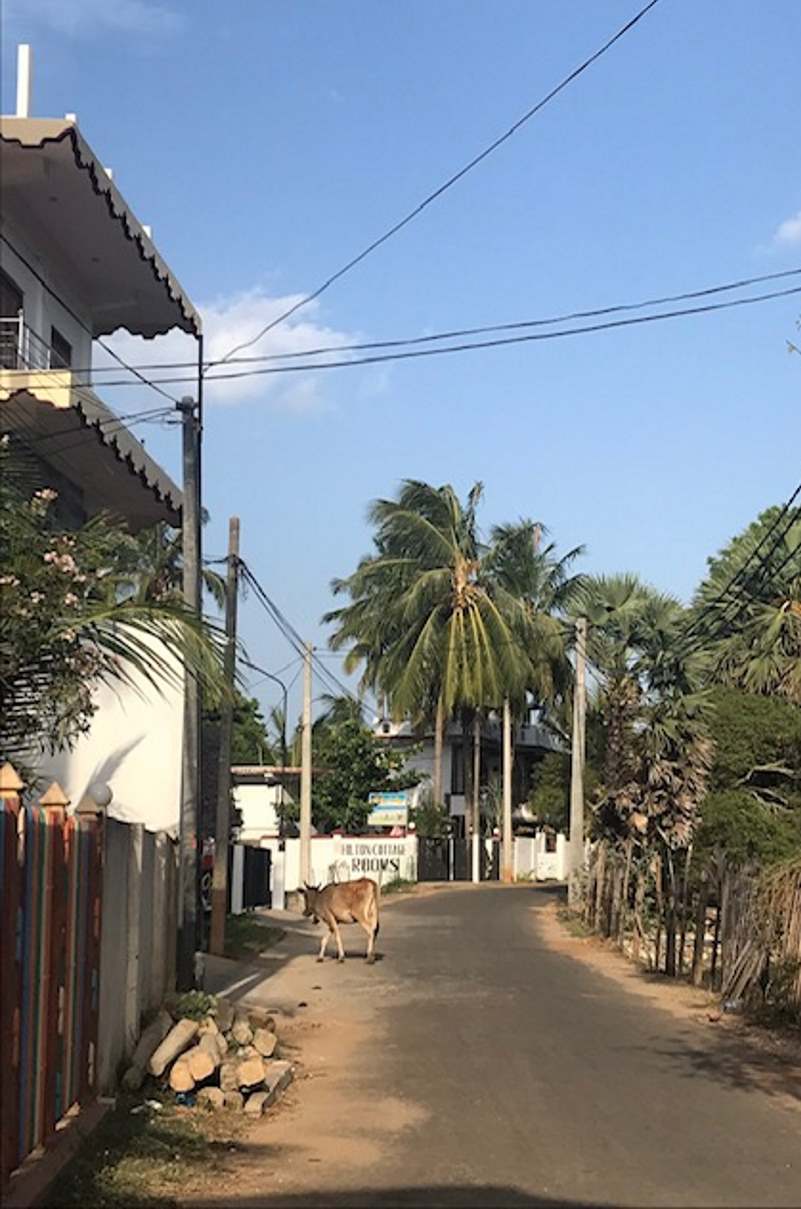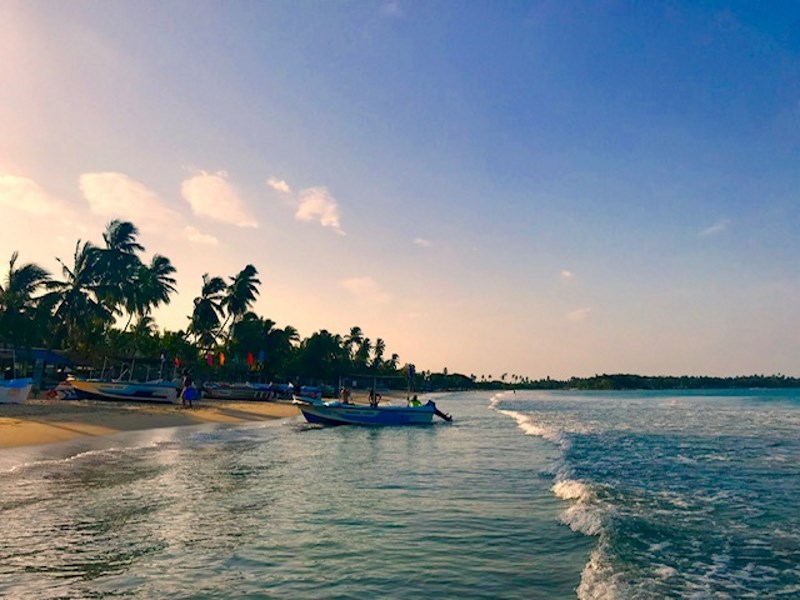
By Megan FitzGerald
Travel Writer6 Oct 2020 - 5 Minute Read
“It's quiet this year,” Riaz murmurs as he sets his son Arjun down, barefoot and wriggling. “Very quiet.”
His son stumbles across the red-tiled kitchen toward his mother, oblivious to the words which swim, fish-like, in conspicuous circles above his head. He clutches onto her dress and she gently strokes his dark hair. Arjun turns to look at me, finger in mouth, probably wondering who I am, and what I’m doing, amongst all these other strangers, in his family’s house.
It is early evening in Trincomalee, Sri Lanka. Snakes of footprints fill the sandy lanes, the sun is reddening behind white blossom trees, and cables of streetlights, hung in lazy waves, are beginning to illuminate the street outside Riaz’s homestay. It's nearly dinner time, and a smell of something delicious is emanating from the stove; Riaz hosts a communal dinner every night, and I think I can hear a small crowd gathering outside.
His remark comes after my cheery observation of how calm and peaceful it is here. As the fish above Arjun’s head dissolve into space, their meaning lost on him, I awkwardly take my gaze to the window as I try to think of a reply. There isn’t one, really.

I think back to the Easter Sunday of that year, a couple of months before I arrived. The headlines of horror, the tabloid pictures of shattered buildings and lives, blurry CCTV images of strangers’ final moments. Televised coverage of funerals, processions and vigils, close-ups of tears running down cheeks, heads in hands. When the bombs tore through Colombo, the wound pierced the rest of the world, and Sri Lanka became the latest tragedy.
A fellow traveler I had met a few days before told me that a hotel he and his family had stayed in recently had only eight rooms filled – out of a previously booked few hundred. Everyone had canceled after the attacks, he had been told. A small, icy sliver of guilt pooled in my stomach as I internally acknowledged that that was my original plan as well. In the end, whether out of curiosity or stubbornness, I had to decided to come anyway.
I am happy I did, but I also question myself at the same time. It feels wrong visiting such an extraordinary country while it's still reeling in tremendous sadness. Sometimes, while I bask in the beauty of the rolling green mountains of Ella, or at the rural plains home to wandering elephants – or now, at the peaceful town which surrounds Riaz’s business – I am reminded of how my perspective of this country must differ so dramatically to what its residents see, and feel. It is easy to forget when you are surrounded in such natural bliss.

“Anyway,” Riaz chirps, bringing me back to reality, “food is ready.”
I had barely noticed the rich smells now brimming the kitchen, and before I know it, he has gone, pushing the front door open, and the low murmur of chatter swells into a chorus of happy voices, coming from a sizeable crowd gathered on his porch. Some people I recognize, others I don’t, and more are still coming in through the gate from the main street, but all of them beam when they see Riaz.
Benches and chairs are dragged to the large table set up in the center of the space, and plates are passed around as strangers rub arms with one another, spilling thoughts about their day. Riaz skims the periphery like a moth around a flame, tending to every need, laughing at every joke, passing trays and bowls back and forth until every soul is fed.
It is dark now, the small gathering illuminated by soft lights, and the black silhouette of a tree curls above the scene like a soft hand cupping something precious. I look across and see Arjun standing, finger still in mouth, watching from the doorway.
This story was a winning entry in the World Nomads Travel Writing Scholarship 2020.
Discover similar stories in
connection
Travel Writer
Megan was a winner of the World Nomads Travel Writing Scholarship 2020. Originally from Oxfordshire (UK), she recently graduated from the University of Manchester with a degree in Film, and is now hoping to break into the travel writing industry.



No Comments